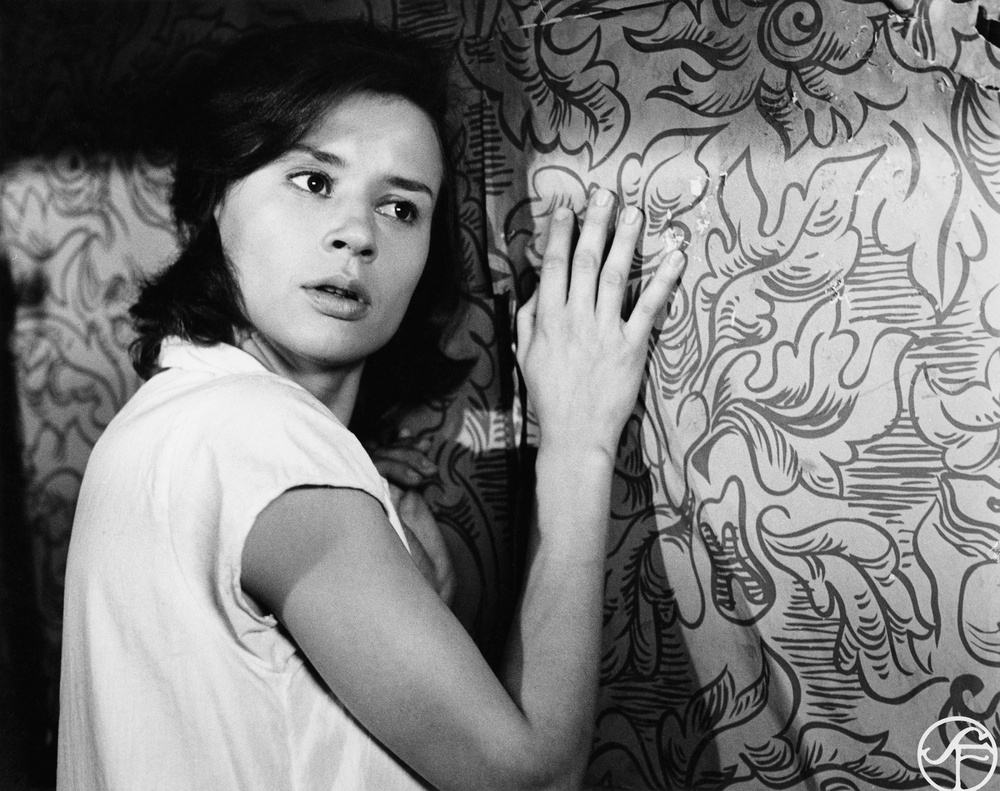Actress Harriet Andersson turns 90
 Harriet Andersson in Through a Glass Darkly (1961). © AB Svensk Filmindustri
Harriet Andersson in Through a Glass Darkly (1961). © AB Svensk FilmindustriShe has captivated Swedish film audiences with her unique presence for well over five decades. Harriet Andersson burned through screens as a young seductress and went on to have a long and thriving career. On February 14, on her 90th birthday, the Swedish Film Institute will celebrate this international icon with a special tribute at Filmhuset in Stockholm.
Harriet Andersson made her breakthrough as a young seductress on the big screen in Ingmar Bergman’s Summer with Monika (1953) but has showed over time that she eludes easy definitions. She is perhaps best known for her work in Bergman films like Sawdust and Tinsel (1953), A Lesson in Love (1954) Smiles of a Summer Night (1955), and for her BAFTA-nominated portrayal of a psychotic girl in Through a Glass Darkly (1961). Their creative partnership spanned four decades on the stage, radio and screen.
Among the many standouts in her multifaceted Bergman performances is her gripping portrayal of Agnes, the sister tormented by cancer in Cries and Whispers (1973). The role earned her a Swedish Guldbagge Award, as well as nominations by the National Society of Film Critics and the New York Film Critics Circle.
Other notable film roles include Mai Zetterling's Loving Couples (1966) and The Girls (1968), Sidney Lumet’s The Deadly Affair (1967) and Lars von Trier’s Dogville (2003).
Her rare blend of the grounded and the ethereal that graced cinema for decades has kept on inspiring new generations of filmmakers. Naturally we want to celebrate the 90th birthday of this Swedish film icon with a tribute.
On February 14 the Swedish Film Institute will arrange a screening of To Love at Filmhuset in Stockholm. Directed by Jörn Donner, the film screened at the 1964 Venice Film Festival, where Harriet Andersson was awarded the Coppa Volpi for Best Actress, among fierce competition like Monica Vitti.
The evening will be introduced by film journalist and biographer Jan Lumholdt, and writer-director Christina Olofson who collaborated with the actress in documentary Lines from the Heart (1996) and feature Happy End (1999).
Harriet Andersson also appears as a part of upcoming documentary Prejudice and Pride – Swedish Film Queer that opens in Swedish cinemas on February 25. Directed by Eva Beling, the film features amongst others Andersson and fellow actress Liv Ullmann being interviewed about queer characters in the films of Ingmar Bergman.
Read more about Harriet Andersson and her films at the Swedish Film Database.
About The Swedish Film Institute
The Swedish Film Institute is a collective voice for film in Sweden, and a meeting-place for experiences and insights that elevate film on all levels. We preserve and make available Sweden’s film heritage, work to educate children and young people in film and moving images, support the production, distribution and screening of valuable film, and represent Swedish film internationally. A broad diversity of narratives establishes discussions and insights that strengthen the individual and our democracy. Together, we enable more people to create, experience and be enriched by film.
Contacts
